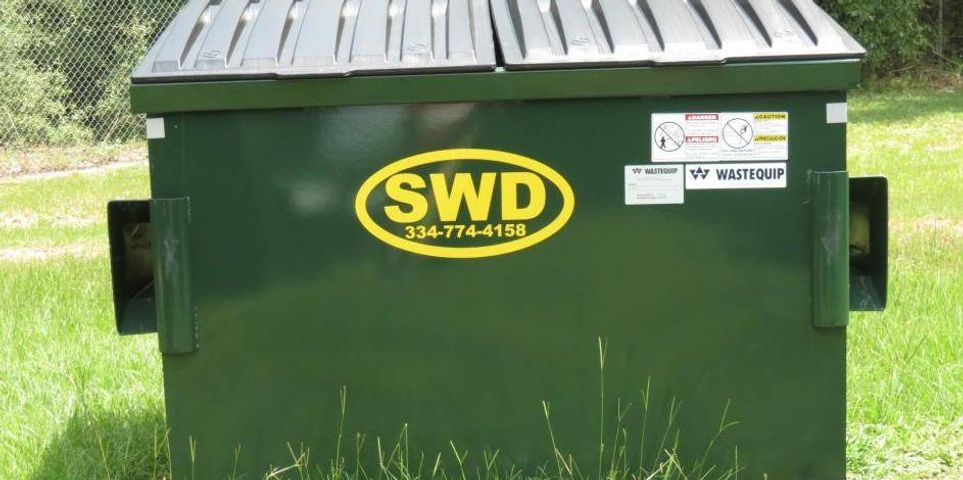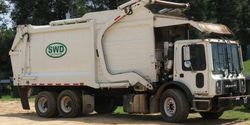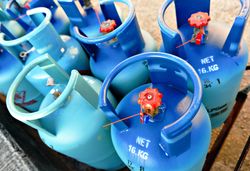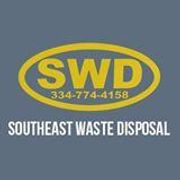What Waste Can & Can't be Put in a Dumpster?

Business owners and their staff members are responsible for maintaining clean, healthy environments free of clutter and waste. Having a dumpster on the property is a great way to practice proper waste disposal habits, but it's important only to toss permissible items. If you're giving the office a spring cleaning, here's what's safe to throw away—and what to avoid.
What Belongs in a Dumpster?
Anything that you can fit in a garbage bag, such as office debris and break room clutter, is safe for waste disposal.
If you're performing a deep clean, you can dispose of much of that waste in the receptacle. Day-to-day employee waste and expired foods are all safe to throw away.
Construction and renovation jobs produce substantial waste. Debris, like concrete, asphalt, stone, and bricks, should be disposed of in a roll-off type dumpster because they are heavy materials. If they need removal, contact a waste disposal company that will supply the appropriate receptacle.
What Doesn't Belong in a Dumpster?

Although it's safe to throw away many items, some are strictly off-limits. This includes anything that contains chemicals, such as paints and fertilizers.
You may also have accumulated batteries in drawers and elsewhere around the office, but it's not permissible to throw them in dumpsters. They don't break down properly in landfills, and they can contribute to environmental damage.
It's also not advisable to throw out large-scale items, such as office furniture. Desks, chairs, and other pieces can be donated. If they're too worn, arrange for a special trash pickup.
What Belongs in a Landfill?
Rubbers
Natural and synthetic rubber materials are accepted at landfills, including rubber bands and all types of gloves.
Plastics
Take compostable and non-recyclable plastics to a local landfill. Include cups, bags, lined paper, wrappers, film, and utensils. Other plastic items, such as styrofoam, stickers, sponges, and six-pack ring holders, are also acceptable. However, the holders should be cut up before disposal.
Organics
When organics aren't compostable, send them to the landfill. Eligible items include string, packing peanuts and foam material, wood, and textiles. Lawn clippings, plants, and shredded branches are also considered organic materials and should be placed in plastic bags for transportation.
Miscellaneous
Old glass windows and mirrors are accepted at landfills, along with ceramic dishware and glassware.
It may not be feasible to transport waste to a local landfill on your own. Disposal companies have various receptacles in numerous sizes that can store the materials. Once collected, they will transfer the waste to a landfill.
How Can You Tell the Difference Between Hazardous & Non-Hazardous Materials?
Hazardous
Hazardous materials are liquid or solid substances that can be harmful to people or the environment. According to the United States Environmental Protection Agency (EPA), hazardous waste has toxicity, reactivity, corrosivity, or ignitability. While many items fall under the hazardous category, you may only encounter some of them.
 Propane and other gases are classified as ignitable, as are materials that can catch on fire if exposed to heat. Corrosive materials have bases or acids in them, which can result in burns. They're commonly seen in batteries and sanitary products, like drain cleaners.
Propane and other gases are classified as ignitable, as are materials that can catch on fire if exposed to heat. Corrosive materials have bases or acids in them, which can result in burns. They're commonly seen in batteries and sanitary products, like drain cleaners.
The same applies to appliances and electronic products, such as mini-fridges, fluorescent light bulbs, smartphones, televisions, desktop computers, and laptops. Recycling facilities are available to take possession of these items.
Pharmaceuticals can be considered toxic, as are common lawn care chemicals, like pesticides and herbicides. Their labels should have disposal instructions to ensure safety and legality.
When handling containers of empty motor oil, paint, or potentially hazardous materials, rinse the insides thoroughly. Once they're as clean as possible, dispose of them based on the materials the containers are made from.
Some hazardous waste items are accepted at landfills, but many more are not. Contact a waste disposal company. They can provide advice on what waste is permissible and what is not. In turn, they can also remove the hazardous materials from your location.
Non-Hazardous
Most items are non-hazardous materials and can be easily disposed of in a dumpster. Food and ingredients aren't hazardous, excluding cooking grease and oil. Instead, they should be allowed to cool. Once solidified, scrape the grease or oil into a sealable, disposable container. Place the container in a sealed plastic bag to prevent leakage. If the substances are well-covered, they'll be safe to throw away.
Are you seeking a reliable company to assist with your waste disposal needs? Turn to the team at Southeast Waste Disposal in Ozark, AL. Proudly serving business owners throughout Dale, Coffee, Henry, Pike, Covington, Houston, and Geneva counties, this trash pickup company offers various dumpsters in different sizes on a regular pickup schedule. They have a receptacle that will meet your needs, and they're also happy to provide a referral for a short-term solution. For more information on their services, visit their website or call (334) 774-4158 to request a quote.
.
About the Business
Have a question? Ask the experts!
Send your question

